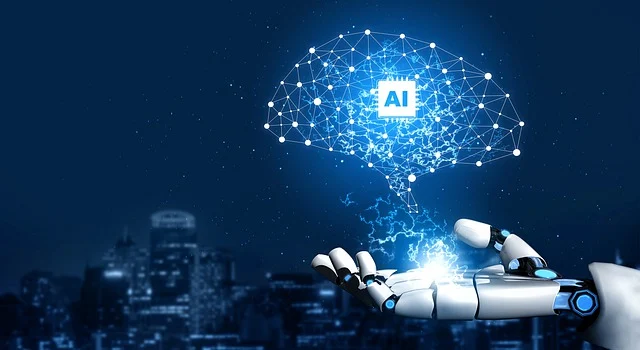Table of Contents
The future is arriving faster than ever, thanks to the rapid growth of artificial intelligence (AI). Understanding how AI is changing our world can help us prepare and adapt for a better tomorrow.
Understanding Artificial Intelligence
Artificial Intelligence (AI) is the simulation of human intelligence in machines, capable of problem-solving, speech recognition, language translation, and driving cars. AI is divided into Narrow AI, designed for specific tasks, and General AI, which can perform various tasks. Understanding these distinctions helps us understand the potential and limitations of AI technology.
AI in Healthcare
AI is revolutionizing the healthcare industry by making processes quicker and more efficient. AI-powered tools can read X-rays, CT scans, and MRI images with high accuracy, enabling quicker and more precise diagnoses. AI algorithms can also help in predicting disease outbreaks and personalizing treatment plans based on individual genetic information. For instance, AI-driven apps now help diabetics manage their blood sugar levels better by analyzing dietary and lifestyle data in real-time. With the integration of AI, the healthcare industry aims to improve patient outcomes while reducing costs and the time required for diagnosis and treatment.
AI in Education
Artificial intelligence is making education more accessible and personalized. AI-driven tools offer personalized learning experiences by adapting educational content to meet individual student needs. For example, programs like Duolingo use AI to tailor language lessons according to the learner’s pace and style. AI can also grade assignments, manage administrative tasks, and even provide instant feedback on student performance. Furthermore, these tools help identify areas where students are struggling, enabling educators to focus their efforts more effectively. Eventually, AI aims to create a more inclusive learning environment that caters to diverse educational needs.
AI in Business
Businesses are leveraging AI to improve efficiency, customer service, and decision-making processes. AI systems can analyze vast amounts of data much quicker than any human, providing invaluable insights that drive strategic decisions. AI-powered chatbots and virtual assistants are revolutionizing customer service by providing real-time assistance and handling customer queries 24/7. Additionally, AI tools help in risk management by predicting market trends and potential customer behavior, thereby enabling businesses to stay ahead of the competition. The integration of AI in business processes not only reduces costs but also increases productivity and profitability.
AI in Transportation
The transportation industry is experiencing a significant transformation thanks to AI. Self-driving cars, once a science fiction dream, are now becoming a reality. AI algorithms help autonomous vehicles navigate roads, avoid obstacles, and make real-time decisions. Besides personal vehicles, AI’s impact extends to public transportation and logistics. AI systems optimize routes, predict maintenance needs, and improve fuel efficiency, leading to cost savings and reduced environmental impact. AI also plays a vital role in developing smart cities, where integrated transportation systems improve urban mobility and reduce traffic congestion.
Ethical Considerations in AI
As AI continues to advance, ethical considerations become increasingly important. Issues such as data privacy, security, and the potential for job displacement are significant concerns. AI systems rely on vast amounts of data, often collected without explicit consent from individuals. This raises questions about privacy and data security. Moreover, as AI automates various tasks, the risk of job displacement looms large, affecting livelihoods across numerous industries. Ethical AI development emphasizes the importance of transparency, accountability, and fairness to ensure that AI technologies benefit humanity as a whole.
The Future of AI
The future of AI is both exciting and uncertain. As technology advances, AI will become more integral to various aspects of our lives. Innovations like AI-driven personal assistants, smart home systems, and advanced robotics will continue to enhance our day-to-day experiences. However, the rapid pace of AI development brings challenges that must be addressed. Ensuring ethical AI use, combating misinformation, and preserving human jobs are critical issues that need attention. Collaborative efforts involving governments, industries, and academic institutions are essential in navigating the future landscape of AI.
Conclusion
The transformative impact of artificial intelligence is undeniable. From revolutionizing healthcare and education to reshaping businesses and transportation, AI technology is set to change our world in unprecedented ways. However, this rapid advancement brings both opportunities and challenges. Ensuring ethical development, addressing privacy concerns, and preparing for potential job displacement are vital steps in maximizing the benefits of AI. As we move forward, embracing the possibilities while mitigating the risks will be crucial in harnessing the full potential of AI to create a better, smarter, and more efficient world. Understanding and adapting to these changes will be essential as we explore the possibilities of tomorrow.
